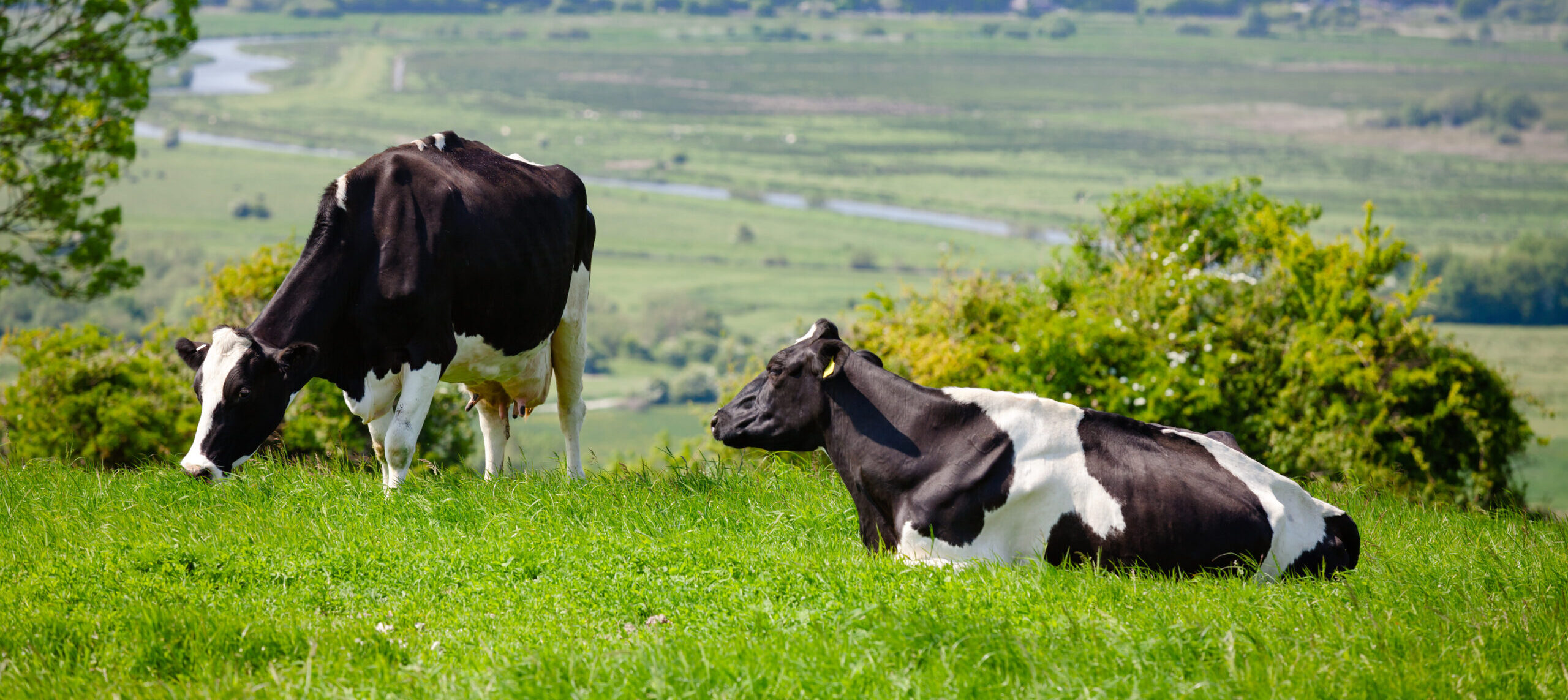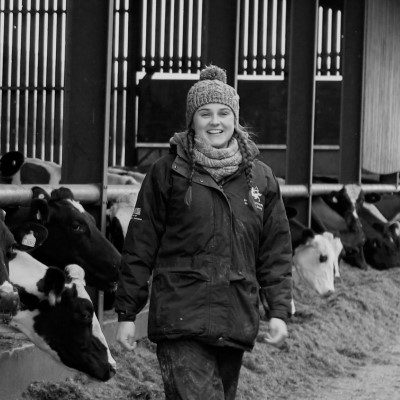CIEL | Blog: Have you heard of EPIHERD?
Sarah Nightingale

A practical solution to help boost dairy farm resilience using the science of epigenomics
CIEL and Industry Member Antler Bio secured a Smart Grant, awarded by Innovate UK, the UK’s innovation agency, to support the development of a precision herd screening tool for the dairy sector.
This innovative project will enable farmers to tailor their farming system to suit the genetic makeup of their herd, using epigenomics and sophisticated data analysis. The primary objective of this development is to drive the sustainability and resilience of UK dairy enterprises.
CIEL’s role in the project has been to help Antler Bio use its networks to ‘stress test’ the technology by working with farmers and industry to help shape the development of a user-friendly, artificial intelligence digital platform and take the technology from concept to practical use.
CIEL and Antler Bio hosted several discovery sessions to engage with the dairy sector, providing an opportunity for farmers and industry specialists to have an open discussion about the functionality and capability of the platform. Throughout the meetings there was also keen interest in finding out more about the science of epigenomics – does an epigenomic profile change over time? Is the platform aimed at breeding or management?
We established:
Monitoring on farm KPIs is vitally important, but currently the data monitored is not necessarily used to improve immediate cow performance. Instead, data is frequently used to make important herd breeding decisions with the aim that the offspring will achieve the desired performance targets. This is a lengthy process as those desired traits can take at least 33 months to enter the productive herd once offspring have been reared.
EPIHERD is unique, as it can identify which genes need to be naturally manipulated by implementing some changes to the animal management and husbandry of a herd to achieve a positive response to productivity, especially those traits that have been selected through breeding strategies. This identification can have a rapid impact on the performance of a herd as well as assist with the selection of future progeny to enhance current breeding strategies.
Comments from farmers included:
“It’s the here and now as compared to genomic testing.”
“I think we all have some outstanding cows within our herds, but even those usually have some traits we don’t like. To be able to test and identify those traits in future generations would be a massive aid.”
Out of the farmers questioned, 80% use genomic testing as part of their breeding strategies to improve herd performance. 25% of these farmers expressed disappointment with the performance of progeny.
Ian Garner, Head of Research and Development at Antler Bio, explained that by using EPIHERD, farmers can maximise the performance of the desired traits by fully understanding how genes are expressed. EPIHERD will specifically identify which genes are underperforming and how farmers can respond to this to achieve an improvement. It is the final piece of the puzzle.
With an understanding of what farmers use to benchmark their dairy enterprise, we wanted to establish the challenges that lie ahead as the industry strives towards net zero, knowing that the EPIHERD technology can and will help alleviate some of the pressures.
Maintaining profitability while reducing emissions was a worry, especially if penalties were enforced as sustainability objectives gained traction within the industry. Therefore, using innovative technology like EPIHERD, designed to maximise performance efficiencies, will be beneficial.
To support this, 71% of respondents agreed that sustainability incentives will alter how herd breeding decisions are made and 57% believe that sustainability incentives will alter how farms monitor key performance indicators.
100% agreed that EPIHERD would help achieve positive results as part of current or future sustainability incentives
Those questioned thought EPIHERD would be a useful herd management tool. There was a realisation that the analysis of epigenomics is currently an unknown science on farms, but the capabilities of the technology mean that it is a potential fundamental resource to improve the resilience of farm businesses. It certainly created a buzz.
We then went through the functionality of the platform in more detail and were pleased that the visuals received excellent feedback. The simplicity of the application, speed of the feedback and clarity were considered huge benefits.
“EPIHERD is easy to understand which is useful for busy farmers”
“It looks a useful tool to reliably improve profitability.”
Next steps:
The next steps for EPIHERD are hugely exciting. During the discovery sessions, we identified several developments that will be beneficial to farmers and industry specialists alike. We are also continuing conversations with industry specialists and farmers to identify some early adopters of the technology so the platform can continue to develop for the benefit of a sustainable dairy industry.
In September, Antler Bio, in collaboration with CIEL and the University of Nottingham, will commence work on a project funded by the Better Foods for All grant, awarded by Innovate UK, to explore innovation for improved consumer nutrition. The project will use the EPIHERD technology to enhance and optimise milk quality which aims to be a pivotal development for the future of British dairy farming.
You can learn more about the EPIHERD project on the CIEL Website, and get in touch with CIEL’s Sarah Nightingale Projects and Knowledge Exchange Manager if you have any questions.


Sarah Nightingale, Projects and Knowledge Exchange Manager
Sarah is involved in project management with a focus on knowledge exchange to increase the impact of projects on the wider agricultural landscape. With over 10 years’ experience working in commercial management and marketing roles in the animal health and livestock nutrition sectors, Sarah has a passion for sharing information that will help optimize the productivity and profitability of farm livestock.







